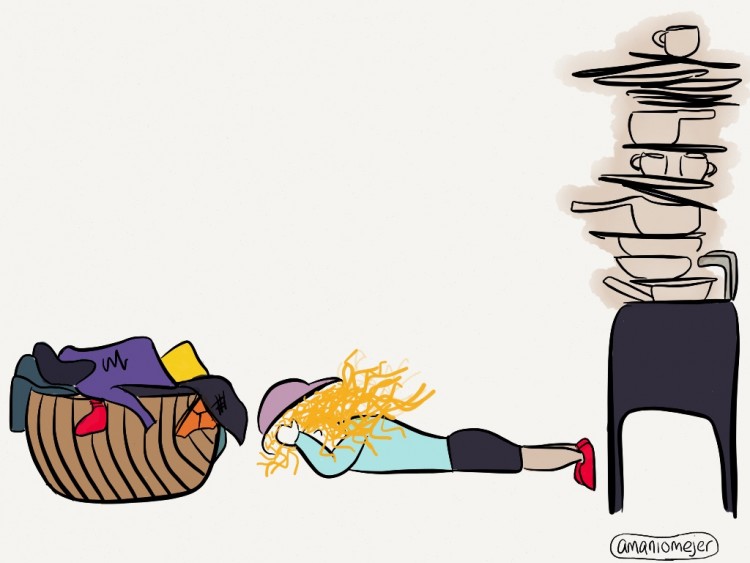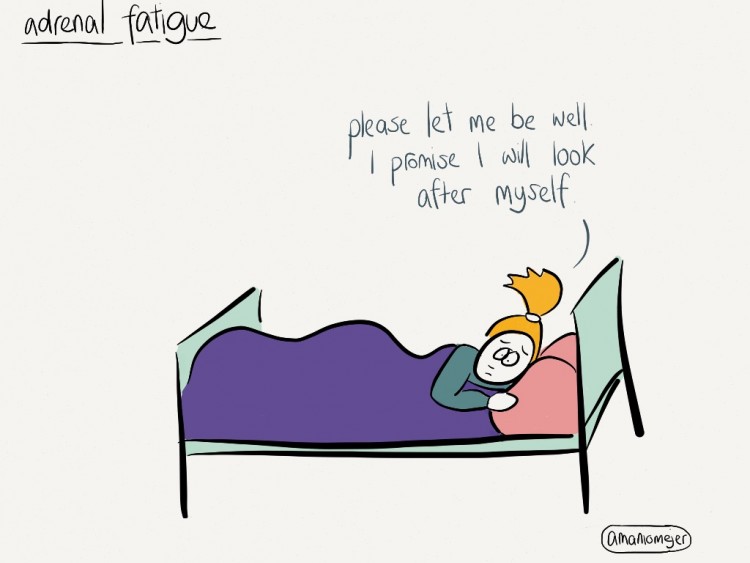I recently spent four weeks in the hospital. This morning, lying in bed, in severe pain and unable to move, I had a strange feeling of missing the hospital. Not the noisy and un-restful clinical environment that being in hospital provides, but the “being able to press a buzzer and get pain relief or water or whatever I needed brought to me.” I missed having people nearby to look after me who are there to do just that, rather than friends I need to ask favors of.
I have lots of people offering their support, but asking for help is still really, really, hard. Sometimes I am good at it, but other times — like during this current stint of illness — it’s been incredibly difficult. When I feel at my most raw and vulnerable, when I’m in the most pain and unable to do the basics I need to do in order to survive (making food, shopping, etc.), asking for help is the hardest.
The fragility and vulnerability of being in so much pain you can’t move is scary — I feel a lot more alone than when I was in hospital. Despite having amazing friends around me, it is the moments like this — the morning after the night before — that are the most lonely and vulnerable. Last night I did more than I had done in ages (I’m not even talking that much — I picked berries from the garden and walked up and down the stairs a few too many times — I didn’t pull an all-nighter or cycle to France) but I woke up feeling as though someone was ripping my ribs apart and I was unable to do anything about it, or get up and get what I needed.
These are the moments — the crashes — I want to share with friends and people who love me, but are the moments that are the hardest to articulate or let people in when I’m experiencing them. Partly because often words don’t touch it, but also because it involves showing someone my unedited “messy.” It involves exposing my tender points, my embarrassment, my shame — it involves being vulnerable. Lifting off the veil of ability I often wear and saying “I can’t do this, I need your help” is so hard. I am good at being vulnerable in some areas of my life, but when it comes to illness, I frequently squirm and change the subject or joke about it.
Being so frequently floored by illness is something that, despite part of me knowing that it’s not my fault — it’s life, it has nothing to do with whether I am lovable or not, or whether I could have done something to prevent it — I still feel deep shame, embarrassment, self-criticism and discomfort about it. Part of me feels as though I have failed — at life and at being able to look after myself. Especially when I need help with the basics.
When spending time with friends, I might share a bit of my experience — I explain that I am in pain or feel really ill — but I never say as much as I need to, and rarely do I allow myself to be exactly as I need to physically. I will lie on the sofa, but only when I feel as though I will pass out if I don’t. I will generally push on through, battling hardcore symptoms while I smile and do things, and wait until friends leave or I walk home, until I fall onto my bed in a teary, exhausted, hurting, and frustrated-with-myself heap.

Sometimes this distraction is medicine — it is a welcome break from the intensity of my experience — but other times, I feel lonely and sad. I feel that familiar heartbreaking feeling of not feeling completely seen, known or understood by people I’m closest to. It isn’t their fault, it is just one of the extremely common, painful, and frustrating aspect, of long-term illness — that so much of it goes on “behind the scenes.”
It is as though my illness happens privately and what other people see is only half of me. The half of me that people see — the happy, bright and smiling me — is still very much me, but it isn’t the whole me. It isn’t necessarily what I am feeling at the time. Sometimes it is, but when I’m feeling really ill, I wear the “Seeming OK” mask, because without it I fear crumbling. I feel scared of being and feeling that vulnerable and exposed. The mask becomes a lifeline in an exhausting slog of simply functioning or interacting with people. But it also bites me on the ass when I want to feel seen, heard and understood. It masks connection.

It saddens me and it also frustrates the hell out of me. Shame and self-criticism is what keeps me silent and squirming. This shame and self-criticism comes from what society has told me I should be doing or achieving in order to have “succeeded,” and ultimately to be accepted and loved.
Chronic health issues have left my life looking very different to what I thought it would look like, and me feeling very different to how I thought I would, but none of it is “wrong.” It might be really tough to deal with but absolutely none of it is me “failing.” If anything it is the opposite: It is me surviving.
Your worth isn’t dependent on what you do, it is dependent on how you are. There are no “right” or “wrong” ways to live, despite society often telling us so — all we have is what is, and how we handle and cope with it.
Shame will always be there, but it doesn’t need to define our experience. Go share with people you trust who have had similar experiences, or people who can have compassion even if they haven’t, and it will dissipate. Even if only for that moment. For me, this is my medicine.

